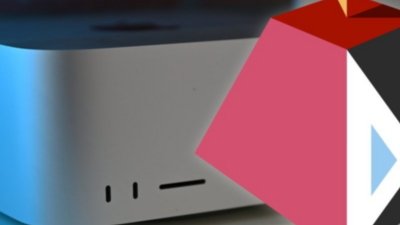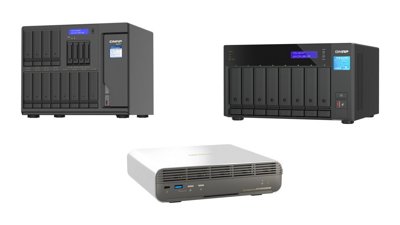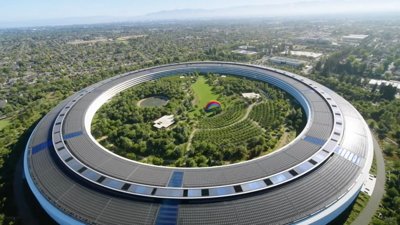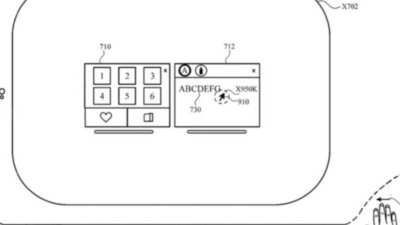Users of Apple Computer's Mac OS X Tiger are soon to receive a handout from the Cupertino, Calif-based company — a new software update to the operating system that will offer increased stability and some performance enhancements.
While Apple has only tapped its developer community on three separate occasions to test pre-release builds of the new update, people familiar with ongoing development of the software say the latest builds are now rid of any known issues.
In its most recent distribution this week, the Mac maker posted to its developer website a 30.8MB version of the update for users of PowerPC-based Macs, labeled Mac OS X 10.4.8 build 8L2125. At the same time, it also issued a hefty 206 MB version for Intel Mac users listed as Mac OS X 10.4.8 build 8L2125.
As part of the ongoing development of Mac OS X 10.4.8, Apple has asked developers to extensively test scientific applications under the Rosetta PowerPC emulation environment for Intel machines, which is said to sport some noticeable enhancements in the area of performance.
In notes to developers accompanying previous pre-release builds, Apple was reported to have addressed issues with Image RAW, ImageIO, ColorSync, Xsan, Xsan File Manager, CoreImage and web images.
According to those familiar with the impending update, Mac OS X 10.4.8 will also introduce improvements to AFP, DVD Player, Graphics and Graphics applications, iCal, iPhoto, Mail, Microsoft Word & OpenType fonts, Modem usage, Networking, Printing, Safari, and USB.
Additionally, the release is likely to bundle support for new lines of Core 2 Duo-based MacBook and MacBook Pro notebooks, which are due for release prior to the start of the holiday shopping season in late November.
 Kasper Jade
Kasper Jade

 Malcolm Owen
Malcolm Owen
 Amber Neely
Amber Neely
 Andrew Orr
Andrew Orr
 Wesley Hilliard
Wesley Hilliard
 William Gallagher
William Gallagher


 Sponsored Content
Sponsored Content









19 Comments
That is quite good news!!! Although, I am pretty sure that 10.4.7 already has a good amount of support for Core 2 Duos...although we can always hope for improvements.
I was told the stupid decimals bug in Indesign had been corrected thanks to Rosetta improvements in the 10.4.8… If graphics application are really performing better, I am ready to buy an iPhone to thank Apple !
Additionally, the release is likely to bundle support for new lines of Core 2 Duo-based MacBook and MacBook Pro notebooks, which are due for release prior to the start of the holiday shopping season in late November.
Before the whining starts about the lack of a MBP Merom, I'd just like to say that with the frequent Intel updates, Apple is probably very smart to set a precedent right now that they will not just be popping in the new chips every time they're released. Because everyone knows when Intel chips are going to be released, Apple would never be able to get rid of old stock whenever an important update was released.
However, by setting the precedent that they will upgrade the Macs on their own inscrutible time table, customers will just buy a machine when they need it, saving potentially millions for Apple.
However, by setting the precedent that they will upgrade the Macs on their own inscrutible time table, customers will just buy a machine when they need it, saving potentially millions for Apple.
Or costing them millions as people know a new chip is out there and just put off buying a new mac until they are released. People have always had a feel for when Apple would release new hardware (every 6-9 months) and as 9 months approached on a product, sales would stagnate (and, like with the PowerMac G5s, which at one point went some 11 months between updates, sales just died).
This is where Dell actually works better. By not building stuff beforehand, they can better manage their inventory and not have to worry about the "Well, if we release a computer with a faster chip, our current production set will need to be written off".
Also, maybe it would behoove Apple to start selling the computers with the 'older' chips as 'economy' products, rather then always making sure their so-called low-end is $1000.
Or costing them millions as people know a new chip is out there and just put off buying a new mac until they are released. People have always had a feel for when Apple would release new hardware (every 6-9 months) and as 9 months approached on a product, sales would stagnate (and, like with the PowerMac G5s, which at one point went some 11 months between updates, sales just died).
This is where Dell actually works better. By not building stuff beforehand, they can better manage their inventory and not have to worry about the "Well, if we release a computer with a faster chip, our current production set will need to be written off".
Also, maybe it would behoove Apple to start selling the computers with the 'older' chips as 'economy' products, rather then always making sure their so-called low-end is $1000.
A big part of me wants to agree with you, because your explanation makes a lot of sense. Here's the counterargument (because it would be boring to just end the discussion):
Obviously having products for purchase in the store increases the likelihood that some set of consumers will purchase a Mac (there's just something about being able to take it home with you).
The second idea you propose is probably not practiced in order to avoid cannibalizing sales of full priced Macs. If you have a fixed set of consumers (certainly the set of Mac consumers is much less fluid than the set of Dell consumers--a Dell consumer probably wouldn't worry much about purchasing his next computer from HP, or vice versa), then cannibalization problems are more pronounced.
This is because Apple's differentiation gives it market power. While Dell is powerless to stop HP from selling discounted older hardware, who is going to undercut Apple in the Macintosh market? In other words, cannibalization is more of an issue to Apple, because they can actually prevent it.
While on balance I'm inclined to say that selling "economy" products would be a great idea, I think maybe part of that is just because of the fact that I as a consumer would benefit from it. Also, I would think that a smart business would do the research to try and measure which plan would be more profitable to them. Hopefully Apple has done so in this case.